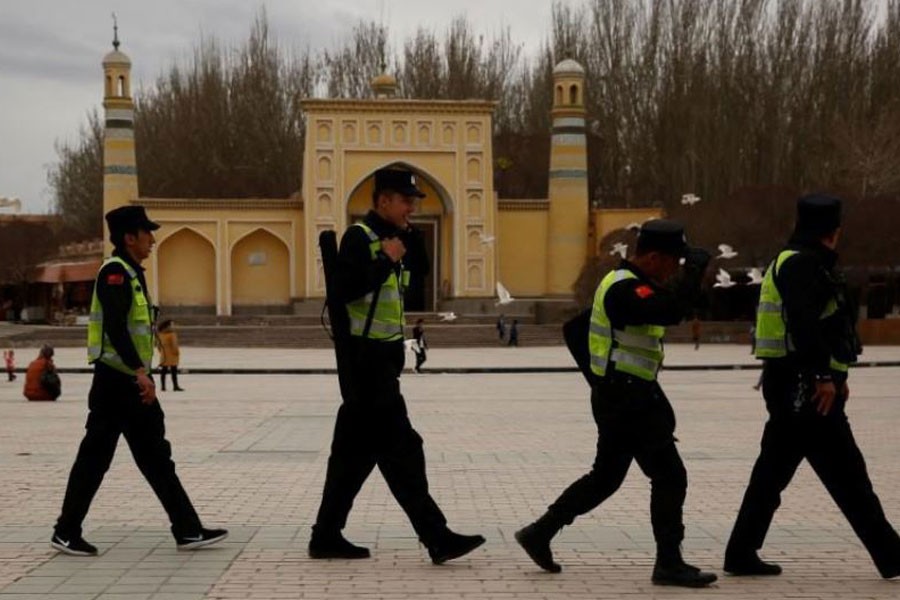The US State Department expressed deep concern over China’s “worsening crackdown” on minority Muslims in the Xinjiang region, as the Trump administration considered sanctions against Chinese senior officials and companies linked to allegations of human rights abuses.
Discussions have gained momentum within the US government over possible economic penalties in response to reports of mass detentions of ethnic Uighurs and other Muslims, which has prompted a growing international outcry, US congressional sources said on Tuesday.
Any sanctions decision would be a rare move on human rights grounds by the Trump administration against China, with which it is engaged in a trade war while also seeking Beijing’s help to resolve a standoff over North Korea’s nuclear weapons.
A US official said the idea of sanctions was still in the discussion stage, and one of the congressional sources said a decision did not appear to be imminent.
“We’re deeply troubled by the worsening crackdown, not just on Uighurs (but also) Kazakhs, other Muslims in that region of China,” State Department spokeswoman Heather Nauert told a news briefing, renewing concerns expressed in recent months by top administration officials.
Nauert acknowledged that the State Department had received a letter from a bipartisan group of US lawmakers at the end of August asking Secretary of State Mike Pompeo to impose sanctions on a number of Chinese officials accused of overseeing the policies. Those included Chen Quanguo, Communist Party chief in Xinjiang and also a member of the Party’s politburo.
Also under consideration are sanctions the lawmakers sought against several Chinese companies involved in building detention camps and creating surveillance systems used to track and monitor Uighurs, according to one of the congressional sources.
Nauert declined to discuss details of any US government action. “We’re not going to preview any sanctions that may or may not happen,” Nauert said.
The Washington-based Uyghur Human Rights Project tweeted a photo of activist Dolkun Isa, president of World Uyghur Congress, at the White House on Monday along with the comment, “A meeting with White House officials today provided much-needed encouragement for Uyghur human-rights advocates.”
Isa, speaking to Reuters by telephone from Brussels, where he said he was due to meet EU officials on Wednesday, declined to say which White House officials he had met in Washington.
Isa said he had the impression from the Americans that “they are seriously considering” imposing sanctions on senior Chinese officials, including Chen, the Party chief in the far western region.
China earlier on Tuesday called for United Nations human rights chief Michelle Bachelet to respect its sovereignty after she urged Beijing to allow monitors into the region and expressed concern about the situation there.
Beijing has said Xinjiang faces a serious threat from Islamist militants and separatists who plot attacks and stir up tension between the mostly Muslim Uighur minority who call the region home and members of the ethnic Han Chinese majority.
Last month, a UN rights panel said it had received credible reports that up to one million ethnic Uighurs may be held in extra-legal detention in Xinjiang, and called for them to be freed.
“There are credible reports out there that many, many thousands have been detained in detention centers since April 2017, and the numbers are fairly significant from what we can tell so far,” Nauert said.
US sanctions could be imposed under the Global Magnitsky Act, a federal law that allows the US government to target human rights violators around the world with freezes on any US assets, US travel bans, and prohibitions on Americans doing business with them.


